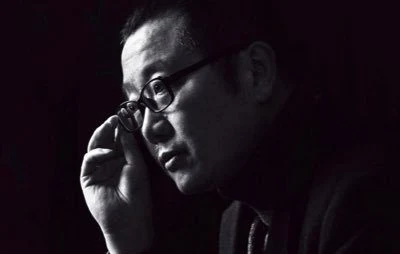Liu Cixin: Grandmaster of Modern Science Fiction
Liu Cixin is a titan of contemporary science fiction, celebrated for his breathtaking imagination and scientifically rigorous narratives. Rising from a career as a computer engineer to become China's most acclaimed sci-fi author, he has captivated a global audience by weaving mind-bending concepts with profound philosophical inquiries into humanity's place in the cosmos.
His work is characterized by its immense scale, often spanning millions of years and entire galaxies, yet it remains deeply rooted in the tangible principles of physics and engineering. This "hard sci-fi" approach, combined with a stark and often unsettling vision of civilization's future, has redefined the genre for the 21st century.

Biography and Achievements 🏆
Liu Cixin was born on June 23, 1963, in Yangquan, Shanxi, China. His formative years during the violent turmoil of the Cultural Revolution profoundly shaped his worldview, instilling in him a deep appreciation for the fragility of order and the power of science as a stabilizing force. After graduating from the North China University of Water Conservancy and Electric Power in 1985, he worked as a computer engineer at a power plant in his home province, a role he maintained for decades while writing his groundbreaking fiction in his spare time.
He began publishing in the 1990s, quickly gaining recognition within China and winning the prestigious **Galaxy Award** nine times. This established him as a leading voice in Chinese science fiction long before his international breakthrough. Despite his accolades, Liu remains grounded, famously describing his primary role as that of a "storyteller" whose goal is to create "the most shocking and imaginative tales."
Major Work: The Remembrance of Earth's Past Trilogy 🌌
More famously known as *The Three-Body Problem* trilogy, this series is Liu's magnum opus and the work that catapulted him to global fame.
- "The Three-Body Problem" (2006): The story begins during the Cultural Revolution, where a disillusioned scientist makes a fateful decision that invites an alien civilization, the Trisolarans, to Earth. The novel brilliantly explores themes of betrayal, hope, and the terrifying realization that the fundamental laws of physics may be under intelligent attack. Its 2015 Hugo Award win was a historic moment, marking the first time a translated novel received the honor.
- "The Dark Forest" (2008): This installment presents Liu’s chilling solution to the Fermi Paradox, the question of "Where is everybody?" in a seemingly empty universe. He posits the "Dark Forest theory" of cosmic sociology: the universe is a dark forest teeming with silent, paranoid hunters (civilizations). Any civilization that reveals its existence is immediately targeted for destruction by others to eliminate potential threats. This establishes a grim, high-stakes game of cosmic survival.
- "Death’s End" (2010): The trilogy's conclusion expands the canvas to an unimaginable scale, exploring concepts like dimensional warfare, pocket universes, and the ultimate fate of the cosmos. It's a poignant and devastating examination of humanity's struggle with cosmic-level ethical dilemmas, where compassion and logic are pitted against each other with the survival of the universe at stake.
Other Notable Works 📚
- "Ball Lightning" (2004): A gripping novel that serves as a thematic precursor to the *Three-Body* trilogy. It follows a scientist whose life is defined by a quest to understand the bizarre phenomenon of ball lightning after it tragically kills his parents. The story is a masterful blend of scientific obsession, military intrigue, and quantum physics.
- "The Wandering Earth" (2000): A collection of novellas led by the iconic title story. It imagines a future where humanity must transform Earth into a colossal starship, powered by thousands of fusion engines, to escape the dying Sun and embark on a 2,500-year journey to a new star system. It's a powerful ode to collective sacrifice and engineering on an epic scale.
- "To Hold Up the Sky" (2020): This collection of short stories showcases Liu's versatility. Tales like "The Village Teacher" beautifully merge the cosmic with the deeply personal, depicting how the legacy of a humble rural teacher ends up saving the entire human race from casual alien annihilation.
Adaptations into Television and Film 🎬
Liu Cixin's vivid storytelling has proven to be fertile ground for screen adaptations, leading to several high-profile projects that have brought his visions to life for a mass audience.
- 3 Body Problem (Netflix, 2024): An ambitious English-language adaptation from the creators of Game of Thrones. It streamlines the trilogy's complex plot and characters for a global audience, blending elements from all three books. It was praised for its visual spectacle and its success in making the dense scientific concepts accessible.
- Three-Body (Tencent, 2023): A 30-episode Chinese series renowned for its remarkable faithfulness to the first novel. This adaptation was lauded by fans of the book for its meticulous pacing and deep dive into the source material's scientific and political intricacies.
- The Wandering Earth (2019) & The Wandering Earth 2 (2023): These Chinese-produced films became massive blockbuster phenomena. They are visually stunning disaster epics that celebrate scientific ingenuity and collective heroism, proving that Chinese science fiction could compete on the global stage.
Impact and Legacy 🧠
Liu Cixin single-handedly elevated Chinese science fiction onto the world stage. His success has not only earned him prestigious awards but has also inspired a new generation of writers in China and sparked immense interest in non-Anglophone sci-fi worldwide. Barack Obama famously said the trilogy was "immensely imaginative" and made "the day-to-day problems with Congress seem fairly petty."
His novels challenge readers to confront uncomfortable truths about humanity's future, existential risks, and the unforgiving nature of the universe. By grounding his cosmic epics in hard science, he forces a reckoning with the immense technical and moral challenges that lie ahead. Liu Cixin's legacy is that of a visionary who expanded the imaginative boundaries of science fiction, proving that the genre's most profound questions are truly universal.

0 comments:
Post a Comment